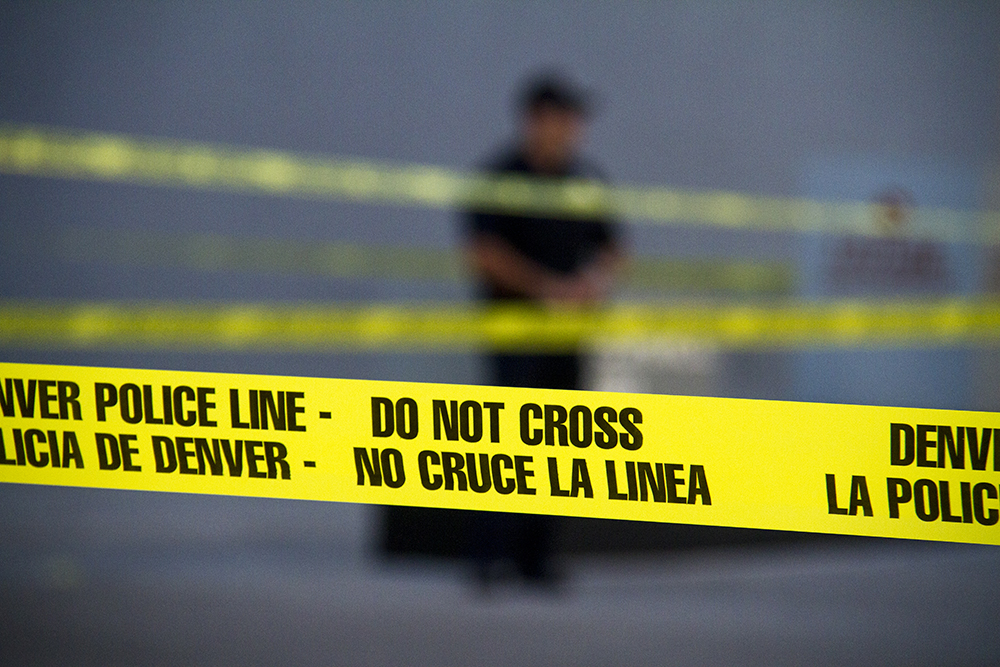
Before wrapping up this year's legislative session, Colorado lawmakers approved a new task force to study how state and local government agencies use facial recognition technology. If Gov. Jared Polis signs off on the plan, a 15-member group will file a report in 2023 about the state's reliance on the technology in law enforcement and other fields, like education.
Lawmakers who sponsored the bill said artificial intelligence software has become a common part of everyday life despite the potential civil liberty issues it poses. Local police departments, for instance, often ask that the Department of Motor Vehicles use its facial recognition software to help identify possible suspects.
“There are major concerns about the use of facial recognition technologies. I think generally the population is probably not aware of the prevalence of government use,” Rep. Kerry Tipper said during a hearing in the House Committee on State, Civic, Military, and Veterans Affairs.
In addition to establishing the task force, the bill prohibits law enforcement agencies from using facial recognition for ongoing surveillance. It also requires them to obtain a warrant or court order authorizing its use.
Separately, the bill imposes a moratorium to prevent public and charter schools from adopting new contracts for facial recognition software until January 2025. Some schools use the technology to screen visitors. Bill sponsor Sen. Chris Hansen said they want to study the use of the software in schools before letting it continue to grow.
“There's a moratorium on new contracts until the facial recognition task force has a chance to review what's working and where we need safeguards,” Hansen said.
Some members of the security industry testified against the bill, arguing that facial recognition is an important tool for catching human traffickers and finding missing persons. They’ve maintained their opposition even after the two chambers made amendments to the bill that allow law enforcement agencies to bypass the ban if they have established probable cause or cleared other procedural hurdles.
“There are some oddities that could have significant public safety impact, such as requiring a court order simply to help identify a missing or deceased person,” said Jake Parker, a senior director of government relations at Security Industry Association, which represents 32 security companies headquartered in Colorado. “While the measure is a step in the right direction to establishing the right rules for use, we hope that the problematic elements can be addressed in future legislation.”
The bill’s supporters say their biggest concerns have to do with flaws in the technology itself. In one landmark study, researchers at Harvard found that face recognition algorithms are consistently less accurate when it comes to identifying female and non-white faces.
Christine Chang, an artificial intelligence scholar at the University of Colorado Boulder, argued in favor of the bill at several of its committee hearings. She thinks the technology needs to be reviewed and should be better regulated. Chang highlighted several wrongfully arrested people of color whose cases involved the misuse of facial recognition.
“Let us recall Robert Williams, Michael Oliver, and Nijeer Parks, all of whom were wrongfully arrested based on investigative leads provided by facial recognition software and all of whom suffered impacts on their lives that include jail time, work, absences, and effects on family members,” she said.
The three men Chang named in her testimony were all found to be wrongfully arrested following mistaken identification by police facial recognition software. In Williams’ case, prosecutors dropped shoplifting charges against him, arguing that police officers relied on “insufficient evidence.”
A spokesperson for Polis would not confirm whether the governor plans to sign the bill into law.
If he does, the committee will have representatives from different regions and industries, including attorneys, professors and police officers. It would make its first report to the Colorado Legislature in October 2023 and disband by 2027.








